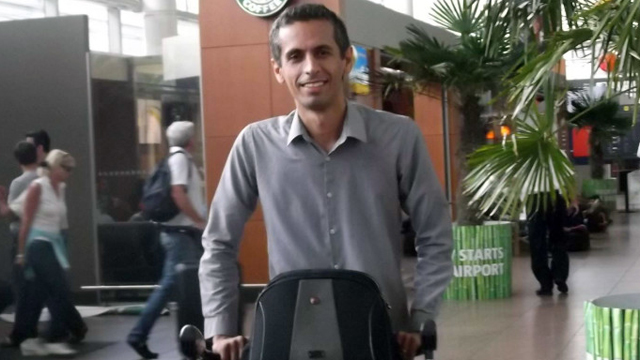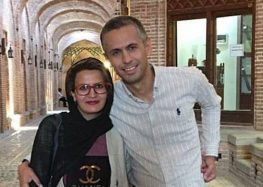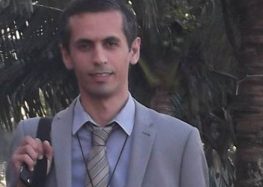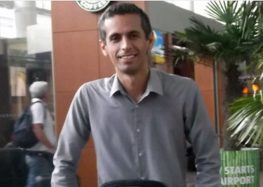PhD Student Imprisoned for Refusing to Work for Iran’s Intelligence Ministry Denied Rights

Hamid Babaei, a PhD student incarcerated for nearly three years in Rajaee Shahr Prison following a trial that lasted less than 10 minutes, has been denied his rights to conditional release and furlough (temporary leave granted to most of Iran’s inmates). Babaei has also been suffering from severe gum disease and other dental problems in prison, but the authorities have ignored his need for proper medical treatment, an informed source told the International Campaign for Human Rights in Iran.
“Hamid and his family have requested furlough numerous times but the prosecutor has refused, not even allowing a short furlough on medical grounds so that Hamid could get treatment at a hospital,” said the source.
Babaei has consistently said that he was imprisoned for refusing to operate as an informant in Belgium, where he was completing his PhD as a foreign student, for Iran’s Intelligence Ministry. During his first trial, Babaei was represented by a court-appointed public defender that was mostly silent and did not offer any defense on behalf of his client, said the source.
Babaei’s lawyer initially advised him to confess to the charges laid against him, but Babaei maintained that he was being penalized for refusing to cooperate with the Intelligence Ministry.
“I did not realize that the moment I walked into the Intelligence Ministry would be the last time we would ever be together and that we would be caught in a bitter scenario,” wrote Babaei in a letter to his wife following his arrest in August 2013. “Neither of us deserved this fate in any way.”
“How I wish we had never come back [to Iran] and this painful tragedy had never happened so I would not be staring at Iran’s sky through barbed wire every day,” he said.
Babaei’s wife, Kobra Parsajou, was arrested in September 2014 for speaking to the media about her husband’s condition and handed a suspended six-month prison sentence.
Family members of political prisoners are frequently warned that they will be punished if they speak to the media about the cases.
Babaei, 32, has served two years and 10 months of his six-year prison sentence, which qualifies him for conditional release. According to Article 58 of Iran’s Islamic Penal Code of 2013, if a prisoner has been sentenced to less than 10 years in prison, the prosecutor or judge can recommend conditional release after he or she has completed a third of the sentence.
Babaei was pursuing his PhD in finance at the University of Liège in Belgium when he was arrested on August 13, 2013 during a visit to Iran to see his family.
The source told the Campaign that Babaei was held in solitary confinement for 20 days in Evin Prison’s Ward 240 and 15 days in Ward 209—both security wards. He was subsequently transferred to General Ward 350 on September 18, 2013.
During his arrest he was repeatedly interrogated without any access to a lawyer or contact with his family. According to the Campaign’s source, on December 21, 2013, during a trial that lasted less than 10 minutes, Judge Mohammad Moghisseh of Branch 15 of the Revolutionary Court sentenced Babaei to six years in prison with an additional four-year suspended prison term for “spying and contact with enemy states.” The Appeals Court upheld the ruling.
Legal experts have argued that the charge of “contact with enemy states” carries no legal weight because Iran is not formally at war with any country.
Babaei, who received his masters in mathematics with honors from the Science and Industry University in Tehran in 2008, was permitted by the Judiciary to visit a dentist outside prison to be treated for severe gum disease on a couple of occasions, but for unspecified reasons the prison authorities did not allow Babaei to attend the appointments even though his family had paid for them.
Amnesty International as well as the Iranian community in Belgium have strongly condemned Babaei’s arrest and conviction and called for his immediate release.



